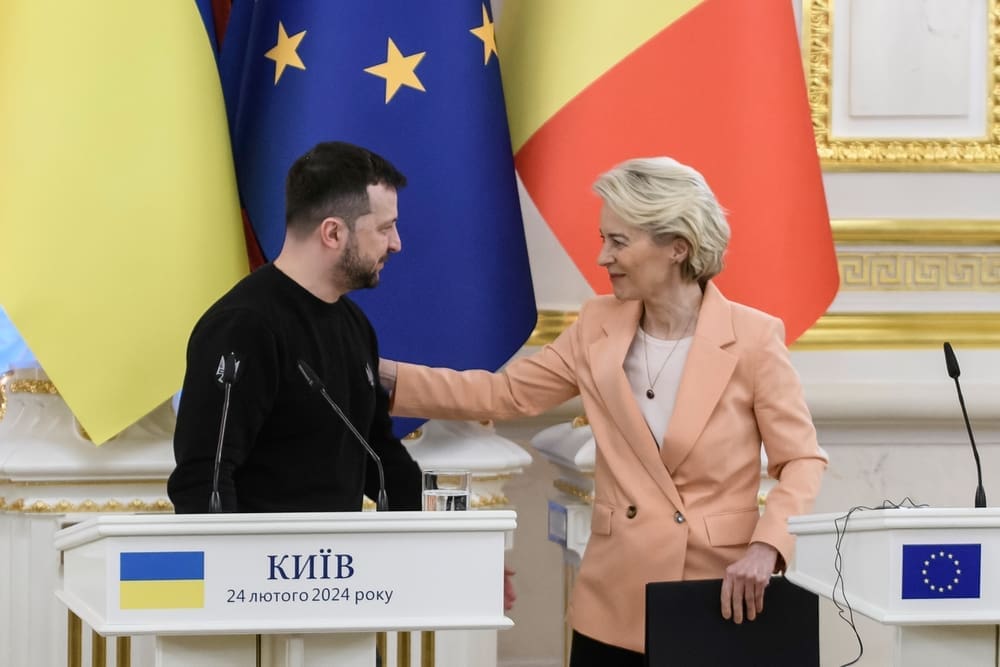A two-day EU-Ukraine Business Summit is underway in Brussels, focusing on strengthening economic ties, accelerating Ukraine’s recovery, and supporting its path to EU accession and integration into the single market. The initiative highlights the bloc’s commitment to fostering closer relations with Kyiv amidst ongoing geopolitical tensions.
Ukraine’s Prime Minister emphasized that the country’s accession to the EU would be mutually beneficial, portraying it as an investment in Europe’s collective strength. He urged European leaders to expedite Ukraine’s integration process, advocating for investment from European businesses in anticipation of Ukraine’s future EU membership. Ukraine applied for EU membership shortly after Russia’s full-scale invasion in February 2022, with President Zelenskyy seeking an expedited process under special circumstances. By June of the same year, Ukraine was granted candidate status by the EU Council following a resolution by the European Parliament.
In Brussels, Poland’s Minister for European Affairs highlighted the importance of shifting the EU’s strategic focus from Russia to Ukraine, citing the ongoing threat posed by Russian ambitions. Italy’s Foreign Minister also expressed support for Ukraine’s EU membership, but stressed the importance of Kyiv completing necessary reforms, assuring Ukraine of continued Italian backing in this endeavor.
The summit also addressed concerns raised by Hungary’s Prime Minister regarding potential impacts on the European market and cohesion funds. The European Commissioner for Enlargement refuted these claims, emphasizing broad support among EU member states for Ukraine’s membership and the ongoing efforts to complete the necessary processes.
Concurrently, Britain and France led a meeting of defense ministers from 30 countries, discussing plans to deploy peacekeeping troops to Ukraine to oversee any future truce with Russia. Ukrainian officials and military analysts have indicated that Russian forces may be preparing a new offensive to exert additional pressure on Kyiv and bolster their negotiating position.
Kyiv views the outcome of the conflict as pivotal for Europe’s future, as the continent seeks a new equilibrium in geopolitical security, economics, and values.
The Bigger Picture
The developments at the EU-Ukraine Business Summit have significant implications for both Ukraine and the broader European community. For Ukraine, the potential for accelerated EU membership offers hope for economic revitalization, increased investment, and stronger geopolitical alliances. This could lead to improved infrastructure, enhanced public services, and greater integration into the European market, which would benefit the Ukrainian populace by providing new job opportunities and economic stability.
For the European Union, Ukraine’s accession represents a strategic shift in its geopolitical focus, potentially strengthening the bloc’s influence in Eastern Europe and counterbalancing Russian ambitions. This shift could lead to a more united and resilient Europe, better equipped to address security challenges and economic uncertainties. However, the integration process also requires careful management to ensure the stability of the EU’s economic and social frameworks, addressing concerns raised by member states like Hungary.
Overall, the summit underscores the importance of strategic partnerships and the need for collaborative efforts to navigate complex geopolitical landscapes. As the EU and Ukraine work towards closer ties, the potential benefits and challenges will continue to shape the region’s future trajectory.














